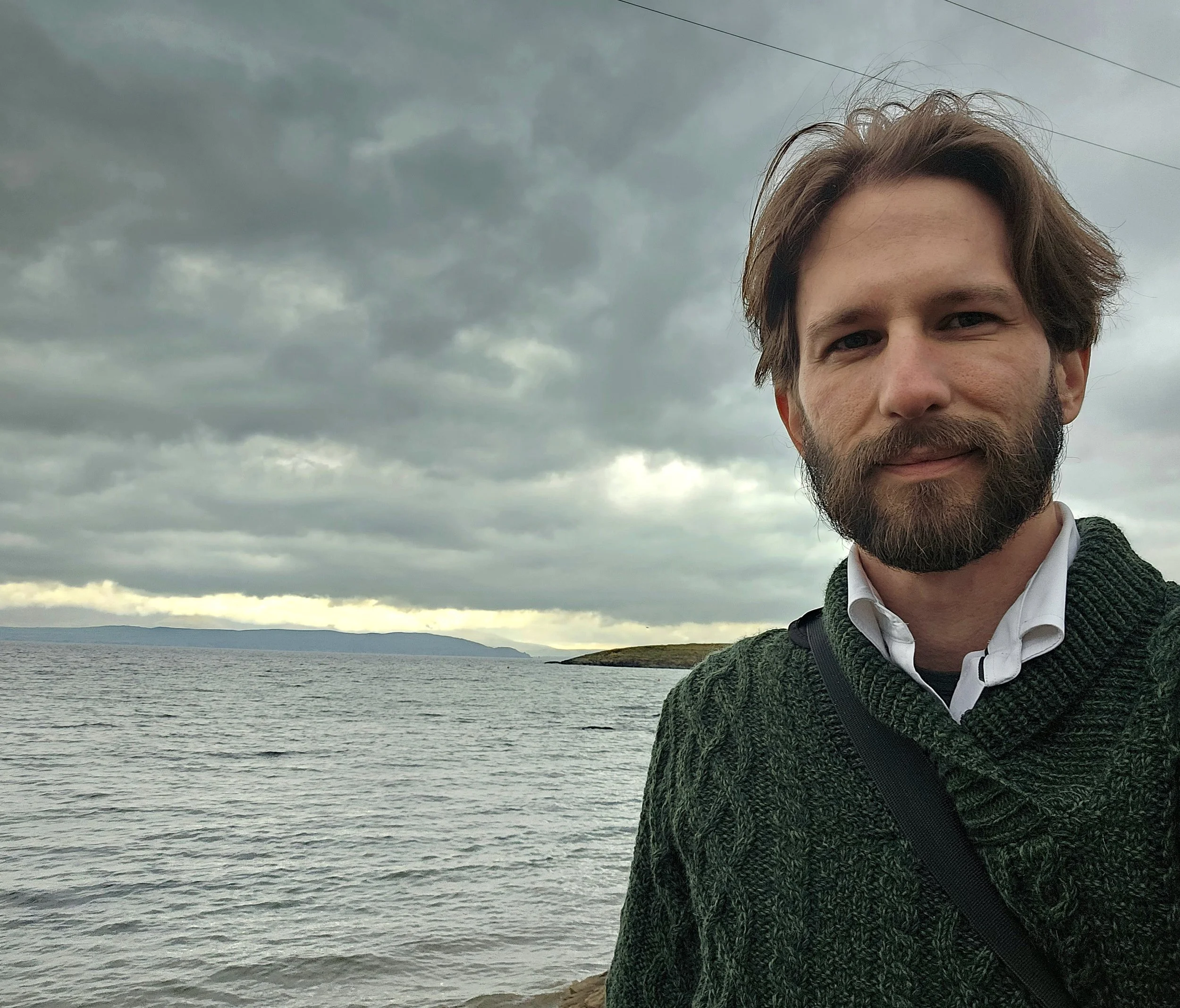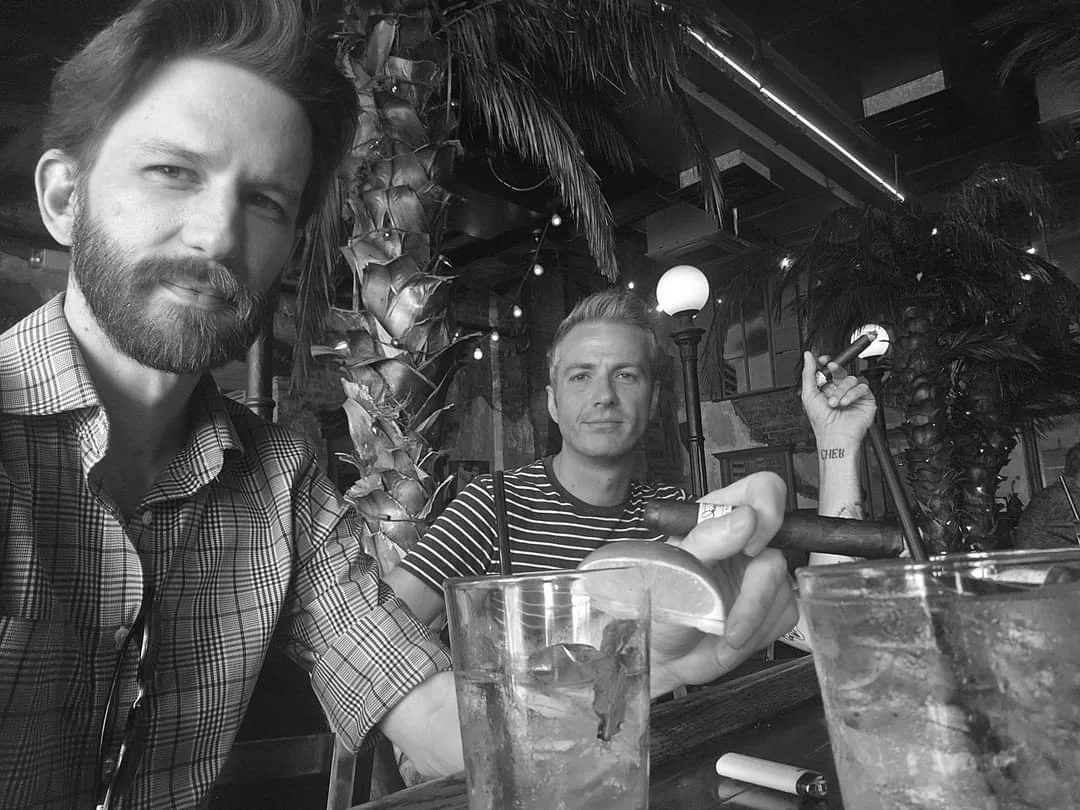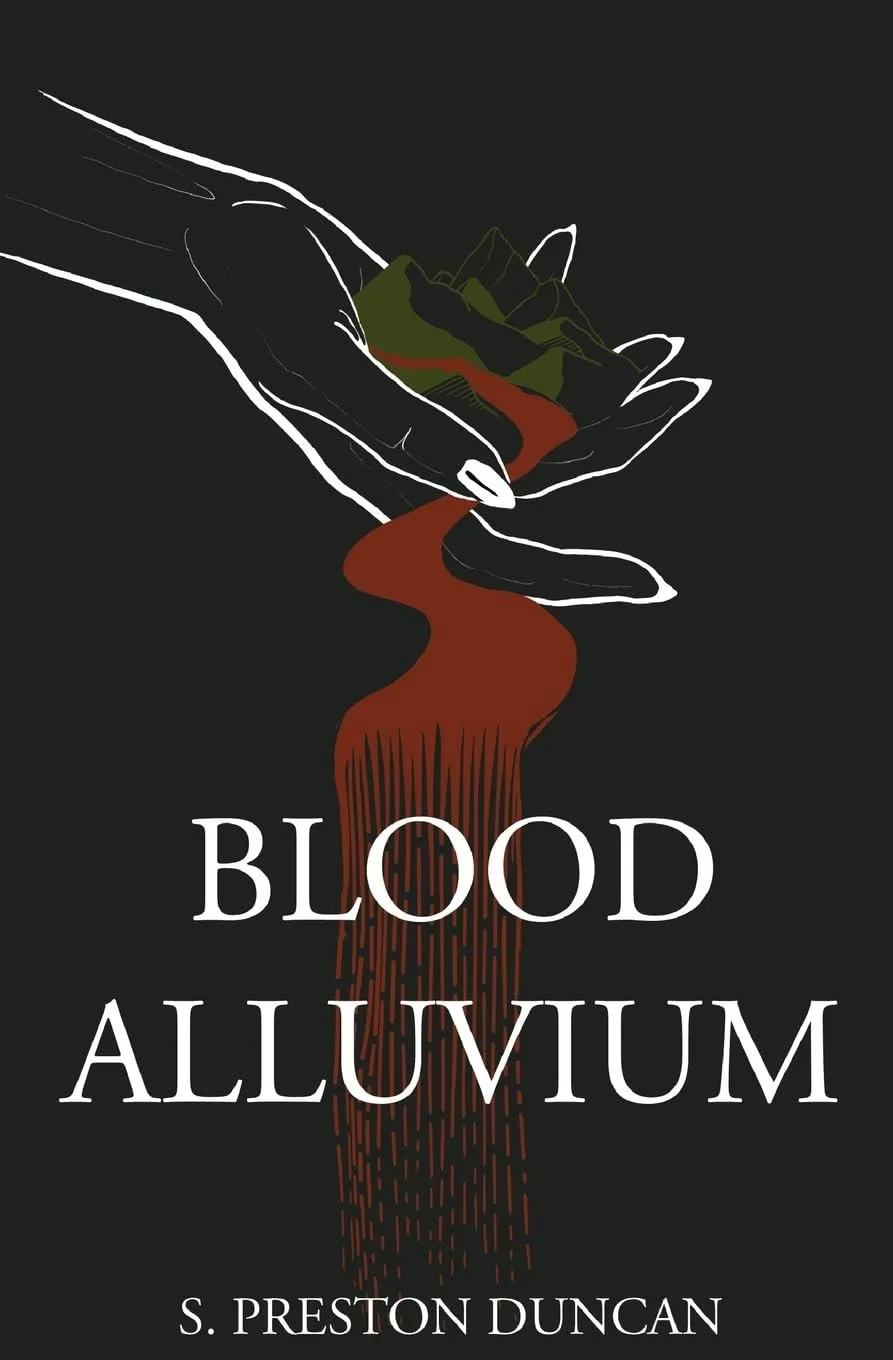On The Ritual Of Writing: An Interview With S. Preston Duncan
In this candid conversation, poet S. Preston Duncan delves into his creative process, the role of music and spirituality in his writing, and how his work grapples with themes of identity, grief, and transformation. From his work as a death doula to his belief in the power of poetry to heal, Duncan reflects on the personal and universal in his poetry.
Writing can often be described as both a solitary and spiritual practice. How do you personally approach the act of writing—do you have rituals or habits that guide your process?
I don't think I have any particular rituals for the act of writing itself. In the best of times, the poems just sort of pour out. In the worst, I force them out. Or they just don't get written. That said, much of my work is informed by ritual and spiritual practice, and the more I'm engaged with that work, the more it finds its way onto the page. I guess you could say that I write ritual more than I ritualise writing. I write because I have to; I don't actually enjoy it. The act of writing is almost physically painful for me, but I'm only ever truly, deeply happy in the ten or twenty minutes that follow the completion of something necessary. Call it catharsis or clarity or just literary OCD. I don't really know what it is.
Many poets find themselves in conversation with writers of the past or with other art forms. Who or what do you consider to be the major influences on your work, and how do they manifest in your writing?
I'm a big fan of Richard Shelton, Pablo Neruda, Joy Harjo, Seamus Heaney… But I think I consider my writing to be more conversant with music. Artists like Joe Pug, Jason Isbell, Brown Bird, Leonard Cohen, and The Dead Tongues feel like the soundtrack to what I write. I like to think there's some musicality to my work, but I have no idea if people feel that way about it, or what music they're hearing if they do. Could be slow fiddle tunes. Could be Enya. So long as it's not jam bands or emo, I’d be happy to know they heard something.
I also have this kind of ever-evolving exchange with a couple Virginia poets like Ryan Kent and Mara Eve Robbins, to whom I feel somewhat directly accountable with my writing practice. It’s both healthy competition and a mutually supportive exchange that has a tendency to remind me, hey, you're supposed to be writing this shit down.
Your poetry grapples with complex themes like identity, grief, and spirituality. When you sit down to write, do these themes arise organically, or do you approach them with a specific intent or framework in mind?
Every once in a while, I sit down with a concept and try to wrestle it out, but most of the time I have no idea what a poem is going to be when I start writing it. It'll just be a line, an image, sometimes just a word. Often it feels like I'm writing in order to figure out what exactly I'm grappling with. A way of externalising and naming something vague and formless and deeply internal. Sometimes they just arrive, fully formed, and my only contribution is the physical act of transcribing them.
As a death doula, you work intimately with the concept of transition and transformation. How has this role informed not only your subject matter but also your philosophy around the purpose and power of poetry?
Oh, I could write a whole book about this (but I'll spare you the full manuscript). My writing changed profoundly when I started doing this work. I began training through INELDA not long after a friend received a terminal diagnosis. I was doing this ritualistic drum journey with her, reading passages from the Tibetan Book of the Dead over a hypnotically repetitive beat. I was pretty sure I had no idea what I was doing, and was basically wasting a dying woman's time. When it was over, I could see she had been crying.
She said “I just took a step into the place where we all go, and there's nothing to be afraid of. I am going to have a beautiful death.” Then she asked me if I had heard of death doulas. I hadn't, but hearing those words felt like being told something about myself that I had always known and forgotten.
Through her journey towards death, I confronted my own mortality, and discovered that my writing had been restrained by my refusal to look death in the eye, to acknowledge fully the transience of life. Once that wall came down, I found my words dwelling in a liminal space that was capable of honouring both the sacred immediacy of life, and the ancient enduring spirit of human creativity. I discovered grieving in this context as not an affliction, but a form of love capable of transmutation. A medium of spiritual ascension.
We live in a death- and grief-phobic culture, and something kind of radical occurs when you make your grieving into an incantation. Art is, after all, a way of touching the infinite. And you can't touch the infinite without recognising the barrier of your corporeal ephemerality.
How do you balance personal introspection with the desire to reach the universal in your work? Do you consciously aim to connect your own experiences with something larger, or does that come naturally through the process?
Good question. I think I'm probably trying to make sense of introspection through that connection to the universal, or searching within for my own connection to something greater. I'm not sure if that's a conscious drive, a subconscious aspiration, or just The Way It Happens. Maybe it's all of those. I do know that, during the editing process, I am always asking myself if a personal piece touches upon the universal. That is to say, if it has anything to offer others. If it doesn't, it usually doesn't see the light of day.
What's the point in sharing if it won't help anyone? Individuality within the context of interconnectedness. That's the goal. I think.
The contemporary poetry landscape is constantly evolving. How do you see your work fitting into or challenging current trends in poetry? Do you think poets have a responsibility to address social and political issues in their writing?
I don't really feel like my work fits into the contemporary landscape at all. At least not the part with the bright lights. In the States, there seems to be this undulating dichotomy between dense academic writing on one end, and sort of lowest common denominator stuff that reads like a series of motivational posters strung together into stanzas on the other. Or else dramatically brief love letters with line breaks. I don't think I fall into either of those categories, and I'm perfectly ne with that. It does make finding readers a bit challenging, but maybe that matters less than how much it means to those who do read and really feel it.
I will say that I spent some time in Ireland last year and was absolutely blown away by the writing I found in journals there. Not just the quality — which was remarkable — but the way in which the writers approached their craft. It was generally accessible and honest without sacrificing eloquence or impact. It didn't underestimate their readership or demand a dictionary. Work that challenges by making you desperate to absorb it. I'm not so presumptuous as to claim my stuff would fit better there, but I found it much more resonant than most contemporary American writing tends to be.
As to your second question, I'd be hesitant to tell people that they have an obligation to address
sociopolitical issues, because there's nothing worse than an uninspired, performative political piece. Political poetry should feel like it was born into the world, burst into flames, and was written in its own ashes. That said, if you're not moved to raise your voice over this roiling hellbroth of injustice in which the world finds itself, I do have to question your sense of place in this life.
This goes back to connecting the internal to the universal, and the spiritual work as well; once you begin to practice seeing every other human as part of yourself, and experience existence as a cosmic experiment in interconnected consciousness, you can no longer remain emotionally separate. Or silent. Whether you choose to share the writing that results from these experiences is another matter entirely. But I do believe that, at its highest potential, poetry can help. It can heal. The question then becomes this: is all poetry that catapults the personal into the realm of the universal inherently revolutionary?
You’ve explored collaboration in past projects, such as your work with De Santis on Lost Arcana. How does collaboration impact your creative process, and what do you think poetry gains from the merging of different artistic mediums?
Writing is usually such a solitary act, and collaboration helps to reframe it. It provides a new perspective. De Santis is an amazing collaborator. De is, in my opinion, truly one of the greatest living visual artists. An actual genius. He's also schizophrenic, and that experience of the world is so profoundly different, yet he has a way of pulling me a step or two into it. All of life is art to De. I find myself thinking differently when I leave his house. Which is, on a personal level, the best experience you can get out of collaboration.
Merging poetry with other mediums serves two purposes — first, it provides a more complete, almost immersive experience, and has the potential to express more than poetry alone. Second, it's a great way to trick people into reading poetry. It allows you to reach audiences who might not be inclined to pick up a book of verse. And that's necessary in our impatiently multimedia culture. Even if they only leave with a line or two in their mouths.
(L-R) S. Preston Duncan with fellow poet, Richard Kent
Given your engagement with deep, often intense themes, how do you know when a poem or a collection is “finished”? What does the process of revision look like for you?
There are very few pieces I've ever felt were truly finished. Most of them just get to a point where I stop working, move on to something else, and when I return feel done enough.
As for collections, Blood Alluvium was “finished” at least ten times before it was actually finished. I kept writing more pieces that seemed like they should go in, and cutting others that had fallen out of favour with me over time (this happens to at least 90% of what I write within a couple months). But there was this moment after adding one last poem that I knew it was actually finished. The 10% that hadn't deflated on the page. It felt different than the other times I had declared myself done. And it was.
The revision process went something like this: First I went in with a cleaver and ruthlessly chopped lines, got rid of a whole nation of unnecessary words. I had my fiancé do the same. She's pretty brutal. Then I hired a professional editor, Taylor Byas, who was worth every damn penny and really helped me see the thing anew, reorder the poems, find a narrative arc. When Parlyaree accepted the collection, we went through a group editing process as well. They've actually been hugely collaborative on everything from line edits to cover art, and really believe in my work. Probably more than I do. Which is not something I ever expected from a publisher.
S. Preston Duncan is a leathercrafter and death doula in Richmond, Virginia. He is the author of the internationally acclaimed full-length poetry collection Blood Alluvium (Parlyaree Press, 2024).
Duncan's work has been commissioned by The Peace Studio, shortlisted for the Art of Creative Unity Award, nominated for Best of the Net, and featured in dozens of journals and anthologies, including Image, HAD, [PANK], The Storms, and Clarion.



